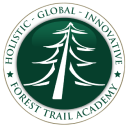Online Middle School
Grade 6 Comprehensive Science 1
This 6th grade science course aligns with Florida’s Next Generation Sunshine State Standards and provides a dynamic introduction to various branches of science, including physical science, ecology, and climatology. Through engaging lessons and hands-on activities, students will explore what scientists do and the distinctions between scientific theories and laws. They’ll review the steps of the scientific method, then apply them by designing and conducting their own scientific experiments.
In 6th grade science, students build a strong foundation in core scientific concepts. They learn about matter and atoms, explore the periodic table, and study the principles of force and motion, including Newton’s laws. The curriculum also covers types of energy and how it is measured.
Students are introduced to ecological topics like abiotic and biotic factors and dive into cell theory and the discovery of cells. Major organ systems are reviewed to help students understand how living things are organized. Earth science topics such as the rock cycle, water cycle, and climate systems are also covered, including the composition and function of the atmosphere.
M/J Comprehensive Science 6 Course Outline
This comprehensive approach ensures that students not only meet educational standards but also develop a deeper curiosity about the world around them, all through the lens of 6th grade science.
Course Objectives
- Plan and implement an investigation using the scientific method.
- Collect, display and interpret data from a scientific investigation.
- Identify and describe the relationship between force and motion.
- Identify chemical and physical properties and classify matter based on these properties.
- Understand and describe the relationship between matter and energy.
- Explain the origin and path of energy and its importance to all life on earth.
- Understand that traits are inherited and that traits can change over time.
- Understand that organisms respond to external stimuli and identify these responses.
- Know and identify the basic structure and components of the solar system, the earth’s atmosphere and the earth’s surface.

Course Outline
Course Introduction
- Introduction
- Understanding Plagiarism
- Course Description
- Course Links
- Pretest
- Assignment: Pretest
- MLA Formatting MSWord 2007
- MLA Documentation updates
- MLA Citation
- MLA Incorporating Sources
Science Therapy & Science In The World
- Objectives and Vocabulary
- Scientific Inquiry
- What is Science?
- Who Are Scientists?
- Essay: Scientist Research Project
- What Do Scientists Do?
- Scientific Laws and Theories
- Examples of Scientific Laws and Theories
- Lesson Review
- Worksheet: Science and the World
The Scientific Method
- Objectives and Vocabulary
- Scientific Method
- Steps of the Scientific Method
- Observations
- Making Observations: Example
- Asking Scientific Questions
- Asking Scientific Questions Practice
- Forming a Hypothesis
- Forming a Hypothesis (continued)
- Worksheet: Scientific Questions and Hypothesis
- Designing an Experiment
- Identifying and Controling Variables
- Collecting and Working with Data
- Validity and Sample Size
- Essay: Testing a Hypothesis
- Analyzing the Data
- Assignment: Scientific Method Practice
- Evaluating an Experiment
- Lesson Review
- Quiz: Scientific Method Quiz
The Scientific Method Projects
- Objectives
- The Scientific Method Project
- Project Guidelines
- Scientific Methods Steps 1 and 2
- Assignment: Scientific Method Steps 1 and 2
- Scientific Method Step 3
- Assignment: Scientific Method Step 3
- Scientific Method Step 4
- Assignment: Scientific Method Step 4
- Scientific Method Step 5
- Scientific Method Step 6
- Scientific Method Step 7
- Assignment: Scientific Method Steps 5-7
Matters, Atoms and Elements
- Objectives and Vocabulary
- What is Matter?
- What is Matter Made Of?
- What Are Atoms Made Of?
- The Electron Cloud Model
- Elements
- The Periodic Table of the Elements
- The Periodic Table of the Elements Continued
- Worksheet: Periodic Table of the Elements
- Review and Quiz
- Assignment: Matter, Atoms and Electrons Lesson Project
Force, Motion and Acceleratin
- Objectives and Vocabulary
- Isaac Newton
- Isaac Newton’s Laws of Motion
- Assignment: Isaac Newton Project
- Force
- Motion
- Acceleration
- Worksheet: Force, Motion, and Acceleration
- Force, Motion, and Acceleration
- Quiz: Force, Motion, and Acceleration
- Newton’s First Law of Motion
- Newton’s First Law of Motion (continued)
- Newton’s Second Law of Motion
- Newton’s Third Law of Motion
- Quiz: Newton’s Laws of Motion
- Assignment: Newton’s Laws of Motion
- Review
Energy
- Objectives and Vocabulary
- Introduction to Energy
- Handout: Introduction to Energy
- How is Energy Measured?
- Units of Measurement
- Kinetic and Potential Energy
- Mechanical and Thermal Energy
- Chemical and Electrical Energy
- Assignment: Introduction to Energy
- Energy and Heat Transfer
- Worksheet: Heat Transfer
- Review and Quiz
- Quiz: Energy Lesson Quiz
Ecology: Organization In The Environment
- Objectives and Vocabulary
- Environment
- Ecology
- Living and Non-Living
- Quiz: Biotic or Abiotic?
- Interactions with Abiotic Factors
- Interactions With Biotic Factors
- Organization of Organisms: Classification
- Worksheet: Classification
- Organization in the Environment
- Quiz: Levels of Organization
- Essay: Organization and Your Environment
- Review and Quiz
- Quiz: Ecology Lesson Quiz
- Midtest
- Assignment: Midtest
Cell Theory, Structure And Function
- Objectives and Vocabulary
- Discorvery of Cells
- Discorvery of Cells: Part 2
- Cell Theory Part 1
- Unicellular Organisms
- Quiz: Mulitcellular or Unicellular?
- Assignment: Infectious Agents Research
- Cell Theory Part 2
- Prokaryotes and Eukaryotes
- Quiz: Prokaryotes and Eukaryotes
- Cell Theory Part 3
- Characteristics of Living Things
- Cells are Living Things
- Cell Structure Overview
- Handout: Define and Label Cells
- Assignment: Define and Label Cells
- Structure and Function
- Quiz: Organelle Function
- Review and Project
- Assignment: Cell Project
Organization in Living Things
- Objectives and Vocabulary
- Multicellular Review
- Cells Work Together
- Tissue Reflection
- Tissues Work Together
- Organs Work Together
- Organ Systems Assignments
- The Digestive System
- Assignment: The Digestive System
- The Respiratory System
- Assignment: The Respiratory System
- The Circulatory System
- Assignment: The Circulatory System
- The Lymphatic System
- Assignment: The Lympatic and Endocrine System
- The Skeletal System
- Assignment: The Skeletal System
- The Muscular System
- Assignment: The Muscular System
- The Nervous System
- Assignment: The Nervous System
- Organ Systems Work Together
- Oranization of Cells Review
- Review
Earth Science
- Objectives and Vocabulary
- Introduction to Earth Science
- Branches of Earth Science
- Worksheet: Branches of Earth Science
- Branches of Earth Science (Continued)
- Quiz: Branches of Earth Science
- Geology: Layers of the Earth
- Geology: Layers of the Earth (Continued)
- The Water Cycle
- Worksheet: Water Cycle
- Review and Quiz
- Quiz: Earth Science
The Rock Cycle
- Objectives and Vocabulary
- What Are Rocks?
- Types of Rocks
- Igneous Rocks
- Sedimentary Rocks
- Metamorphic Rock
- The Rock Cycle
- Essay: Rock Cycle Letter
- Review and Quiz
- Quiz: Rock Cycle
Climate & Whether
- Objectives and Vocabulary
- What is Climate?
- History of Climate
- Ice Ages
- Worksheet: Climate and Ice Ages
- What is Weather?
- Air Pressure
- Wind
- Handout: What’s the Weather Chart
- Assignment: Weather Lab
- The Coriolis Force
- Air Masses
- Warm and Cold Fronts
- Worksheet: Air Masses and Fronts
- Being Prepared
- Review and Quiz
- Quiz: Climate and Weather
Atmosphere
- Objectives and Vocabulary
- What is the Atmosphere?
- Composition of the Atmosphere
- Quiz: Atmosphere Composition
- Oxygen and Nitrogen
- Assignment: Oxygen and Nitrogen
- Structure of the Atmosphere
- Review and Project
- Assignment: Atmosphere Project
- Post-test
- Assignment: Post-test
Course Evalution
- Handout: Course Evalulation
- Assignment: Course Evaluation

